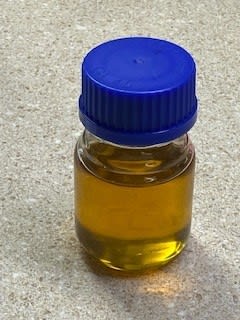CBCV (Cannabichromevarin) and CBCa (Cannabichromenic Acid) are two fascinating cannabinoids found in hemp and cannabis plants. Both compounds have unique characteristics that distinguish them, despite their shared origins.
CBCV, commonly referred to as Cannabichromevarin, is a non-psychoactive cannabinoid present in hemp. Derivative of CBC (Cannabichromene), this compound, while less prevalent than some of its counterparts, is gradually gaining traction within the hemp and cannabis sectors.
On the flip side, CBCa, or Cannabichromenic Acid, stands as the forerunner to CBC. This compound thrives in the raw state of hemp and cannabis plants. Upon exposure to factors like heat or sunlight, CBCa undergoes decarboxylation, transforming into CBC.
Delving into their molecular details, CBCV and CBCa both relate to CBC. However, while CBCV is a derivative found in mature plants, CBCa is a precursor predominantly seen in raw, unprocessed plants.
Always remember that, depending on where you reside, the legality of CBCV and CBCa products can differ. It’s paramount to familiarize yourself with local laws and regulations before purchasing or consuming these products.
Many States allow hemp derived cannabinoids under the 2018 Farm Bill as long as they contain less than .3% D9 THC. Some States have explicitly banned cannabinoids like Delta 8, so check your local rules and regulation before purchasing.
Here’s the rules for Kush.com and more details
Frequently Asked Questions (FAQs)
- What is CBCV (Cannabichromevarin)?
CBCV is a non-psychoactive cannabinoid from the hemp plant. A derivative of CBC, it’s gaining momentum for its potential roles in the hemp and cannabis industry. - What is CBCa (Cannabichromenic Acid)?
CBCa is CBC’s precursor, found in raw hemp and cannabis plants. When exposed to heat or sunlight, it undergoes decarboxylation, converting to CBC. - How are CBCV and CBCa related?
Both CBCV and CBCa have ties to CBC. CBCV is a derivative of CBC, while CBCa leads to CBC. They’re both in the hemp plant but at different life cycle stages. - What’s the primary distinction between CBCV and CBCa?
Their chemical structure and the plant’s life cycle stage they’re found in set them apart. CBCV, a CBC derivative, is in mature hemp plants, while CBCa, CBC’s precursor, is in raw hemp plants. - Are CBCV and CBCa present in hemp products?
Indeed, you can find both in hemp products. However, their levels might differ. Always check the product’s lab reports to discern its cannabinoid profile.
Medical Disclaimer
The content shared is purely for educational objectives and shouldn’t replace professional medical counsel. Before using CBCV or CBCa products, please consult with your healthcare professional.
Shop
Similar Product Searches You Might Be Interested In:
- Water Soluble DELTA 8! 20,000 Mgs/Literon May 16, 2024 at 6:55 pm
Lab Direct Water Soluble Delta 8 Water. 20% D8 (200,000 mgs per liter)ma
- 25MG Delta 8 Gummies! #1 Kush Seller! 1,000 MOQon May 16, 2024 at 6:55 pm
** TOP Seller on KUSH since 2018! ** 25MG Delta 8 Gummies! (Also availa
- CBC! CBC Isolate! Flash Sale! CGMP!on May 16, 2024 at 6:55 pm
CBC Distillate Ready to ship!
- Lowest price CBC isolate on Kush!on May 16, 2024 at 6:55 pm
CBC Isolate CGMP CBC 99.9% $13000 per kg
- CBG! cGMP LAB! 99.8%!on May 16, 2024 at 6:55 pm
PURE CBG Isolate! LOW MOQ 100 G $15 101-500 $14 500-1KG $13 1000+ $12

